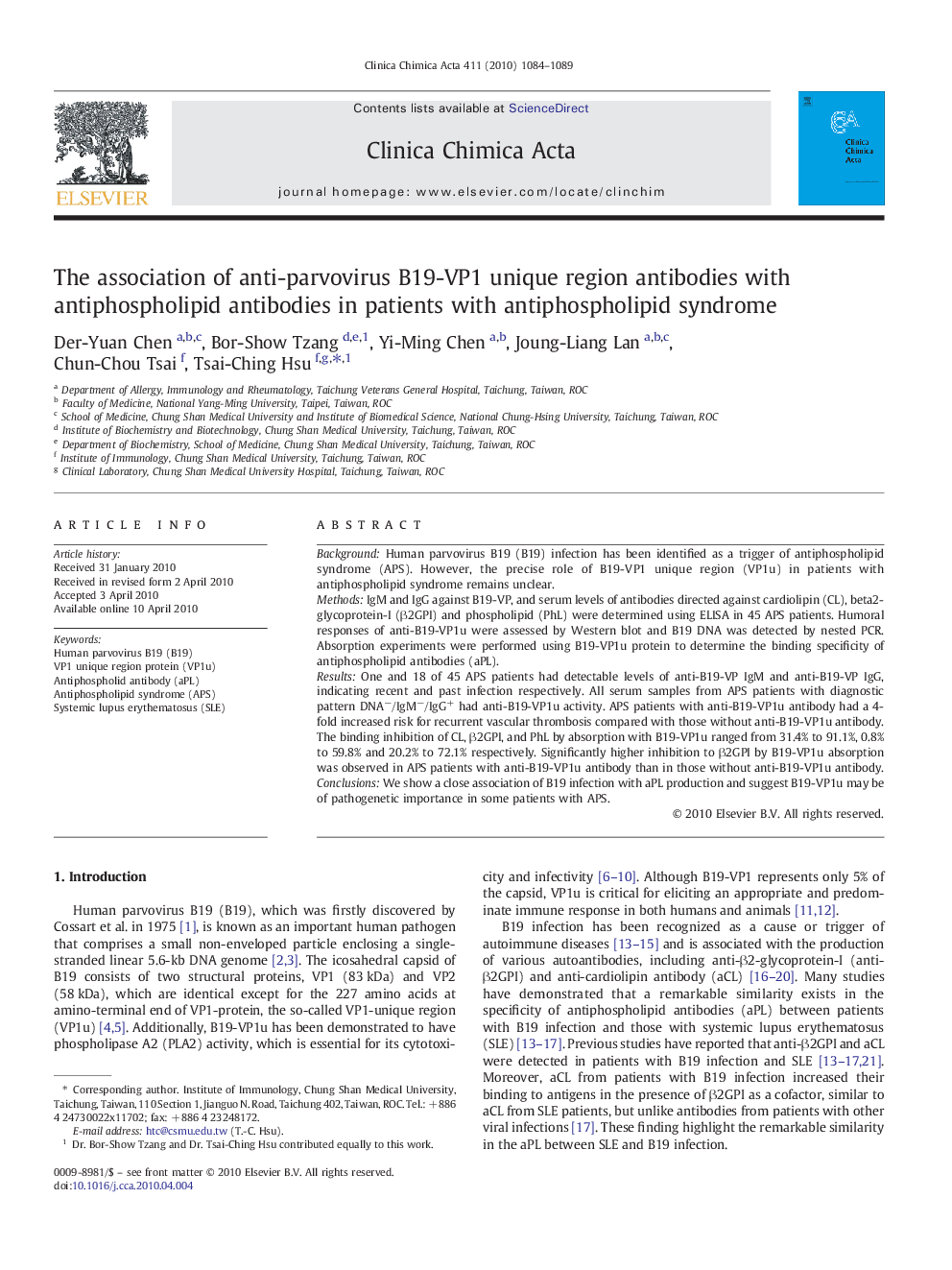| Article ID | Journal | Published Year | Pages | File Type |
|---|---|---|---|---|
| 1965849 | Clinica Chimica Acta | 2010 | 6 Pages |
BackgroundHuman parvovirus B19 (B19) infection has been identified as a trigger of antiphospholipid syndrome (APS). However, the precise role of B19-VP1 unique region (VP1u) in patients with antiphospholipid syndrome remains unclear.MethodsIgM and IgG against B19-VP, and serum levels of antibodies directed against cardiolipin (CL), beta2-glycoprotein-I (β2GPI) and phospholipid (PhL) were determined using ELISA in 45 APS patients. Humoral responses of anti-B19-VP1u were assessed by Western blot and B19 DNA was detected by nested PCR. Absorption experiments were performed using B19-VP1u protein to determine the binding specificity of antiphospholipid antibodies (aPL).ResultsOne and 18 of 45 APS patients had detectable levels of anti-B19-VP IgM and anti-B19-VP IgG, indicating recent and past infection respectively. All serum samples from APS patients with diagnostic pattern DNA−/IgM−/IgG+ had anti-B19-VP1u activity. APS patients with anti-B19-VP1u antibody had a 4-fold increased risk for recurrent vascular thrombosis compared with those without anti-B19-VP1u antibody. The binding inhibition of CL, β2GPI, and PhL by absorption with B19-VP1u ranged from 31.4% to 91.1%, 0.8% to 59.8% and 20.2% to 72.1% respectively. Significantly higher inhibition to β2GPI by B19-VP1u absorption was observed in APS patients with anti-B19-VP1u antibody than in those without anti-B19-VP1u antibody.ConclusionsWe show a close association of B19 infection with aPL production and suggest B19-VP1u may be of pathogenetic importance in some patients with APS.
